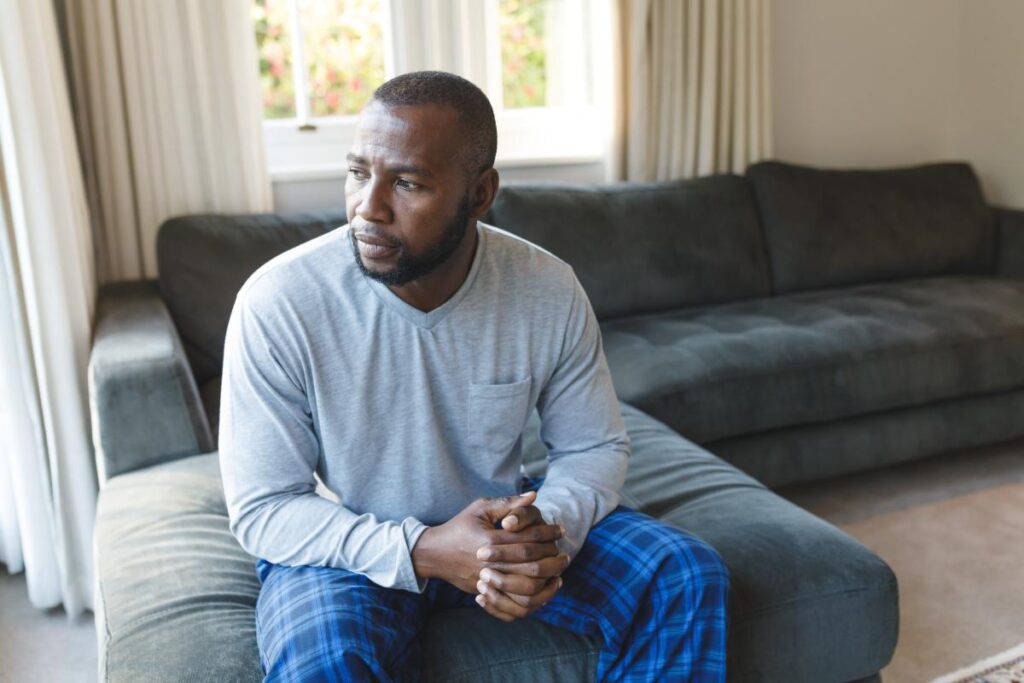What is chronic depression? In short, it’s one of the most severe types of depression. Chronic depression is a long-term health issue. Without support from an inpatient depression treatment center, chronic depression will continue to strip away a person’s quality of life and can tragically end in suicide.
Promises Behavioral Health has mental and behavioral health treatment centers across the United States. We offer inpatient and outpatient support for various mental health conditions, including chronic depression. Call 844.875.5609 today to learn what chronic depression is, how to spot chronic depression symptoms, and how Promises can help.
What Is Chronic Depression?
Depression is a mood disorder that often leaves a person feeling hopeless, numb, or unwilling to continue living. However, there are several different types of depression. Some of the most well-known forms of depression include:
- Major depression
- Chronic depression
- Postpartum depression
- Situational depression
- Seasonal depression
Some types of depression, like seasonal depression and postpartum depression, are brought on by physical or environmental factors. When depression doesn’t appear to have an identifiable trigger, it’s typically diagnosed as major depression.
Chronic depression is similar to major depression, with one key difference: time. Chronic depression, also known as persistent depressive disorder (PDD), is depression that lasts for at least two years.
Signs of Chronic Depression
Depression for any length of time takes a significant toll on mental, emotional, and physical health. When it lasts for years, it’s a serious sign that professional help is needed.
Some of the most common symptoms of chronic depression include:
- Depressed mood lasting at least two years
- Hopelessness
- Fatigue
- Sleep issues
- Lack of energy
- Loss of appetite
- Weight loss or gain
- Difficulty with concentration and focus
- Low self-esteem
Symptoms of chronic depression and major depression are often similar.
Aside from the time over which symptoms are experienced, one key difference between major depression and chronic depression is how an individual is affected by the signs of chronic depression.
It’s more common to experience the symptoms of major depression during defined periods, which alternate with periods of no symptoms. With chronic depression, it’s more common for symptoms to persist without stopping. Chronic depression symptoms are often less severe than those associated with major depression but are pervasive in everyday life.
Treating Chronic Depression
The longer a person struggles with depression, the more likely they’ll require professional help to put a lasting stop to symptoms. Because chronic depression is a long-term condition, it’s common for mental health professionals to recommend inpatient depression treatment.
Inpatient treatment provides round-the-clock care and an immersive environment where a client receives continued support to establish a foundation for balanced mental health. Other treatment options for chronic depression include partial hospitalization programs (PHPs), which offer all-day programming, and intensive outpatient programs (IOPs), which meet for a few hours a few times a week. PHP and IOP are recommended as continued treatment options after a client completes an inpatient program, but these can also be completed without first entering residential depression treatment.
At all levels of care, treatment for chronic depression typically consists of a combination of cognitive-behavioral therapy (CBT) and antidepressant medications.
Find Depression Treatment with Promises Behavioral Health
Living with chronic depression makes life more complicated and emptier than it should be. It can seem as though chronic depression symptoms are unavoidable, but with the right help, overcoming chronic depression is possible.
Promises Behavioral Health has mental and behavioral health treatment centers throughout the United States. We offer all levels of care for depression treatment, including inpatient care. We also work with clients to identify and treat co-occurring conditions contributing to chronic depression, such as substance use disorder or bipolar disorder. If you or a loved one are showing signs of chronic depression, you’re not alone. Contact Promises today at 844.875.5609 to learn more.

